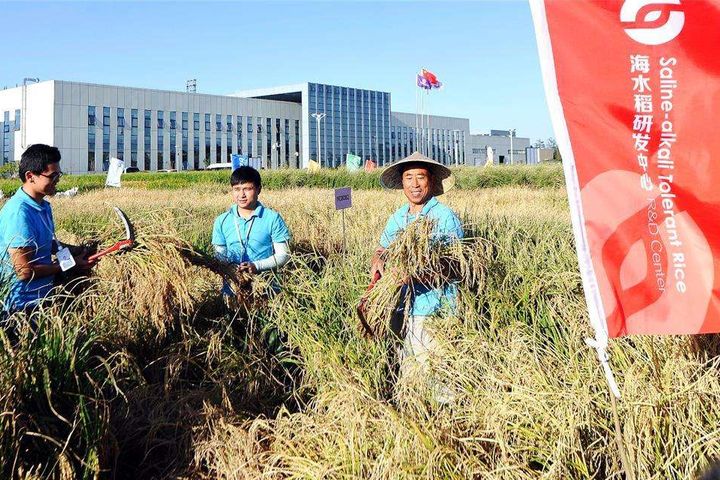 Qingdao Research Center's Sea Rice Patch Has Maximum Yield Over 600kg/mu, Experts Say
Qingdao Research Center's Sea Rice Patch Has Maximum Yield Over 600kg/mu, Experts Say(Yicai Global) Sept. 29 -- China (Qingdao) Rice Research and Development Center has planted its first patch of saline-alkali resistant rice, commonly known as sea rice for a trial. The maximum yield is more than 600 kilograms per mu (9,000 kilograms per hectare), per an on-site yield survey.
More than 30 sea rice and saline soil improvement experts led by the Chinese Academy of Engineering's Yuan Longping (the 'Father of Hybrid Rice') conducted the survey yesterday.
They found the small-area maximum yield was 620.95 kilograms per mu, while its minimum was 438.14 kilograms per mu. The large-field maximum yield was up to 500 kilograms per mu.
The salinity of the experimental field irrigation water is 6 parts per thousand, which is quite high, the experts said.
Chin has more than 35 million mu of coastal mud flats and 1.5 billion mu of inland areas covered in saline-alkali soil, and 300 million mu could be transformed and utilized, said Zhang Guodong, the vice director of the center. The research team plans to promote the planting of 100 million mu of saline-alkali resistant rice in the country in five to eight years.
Breeding a saline-alkali resistant variety of rice suited for fields with salinity of 3 to 8 parts per thousand, yielding more than 300 kilograms per mu, is necessary, Yuan has publicly stated.